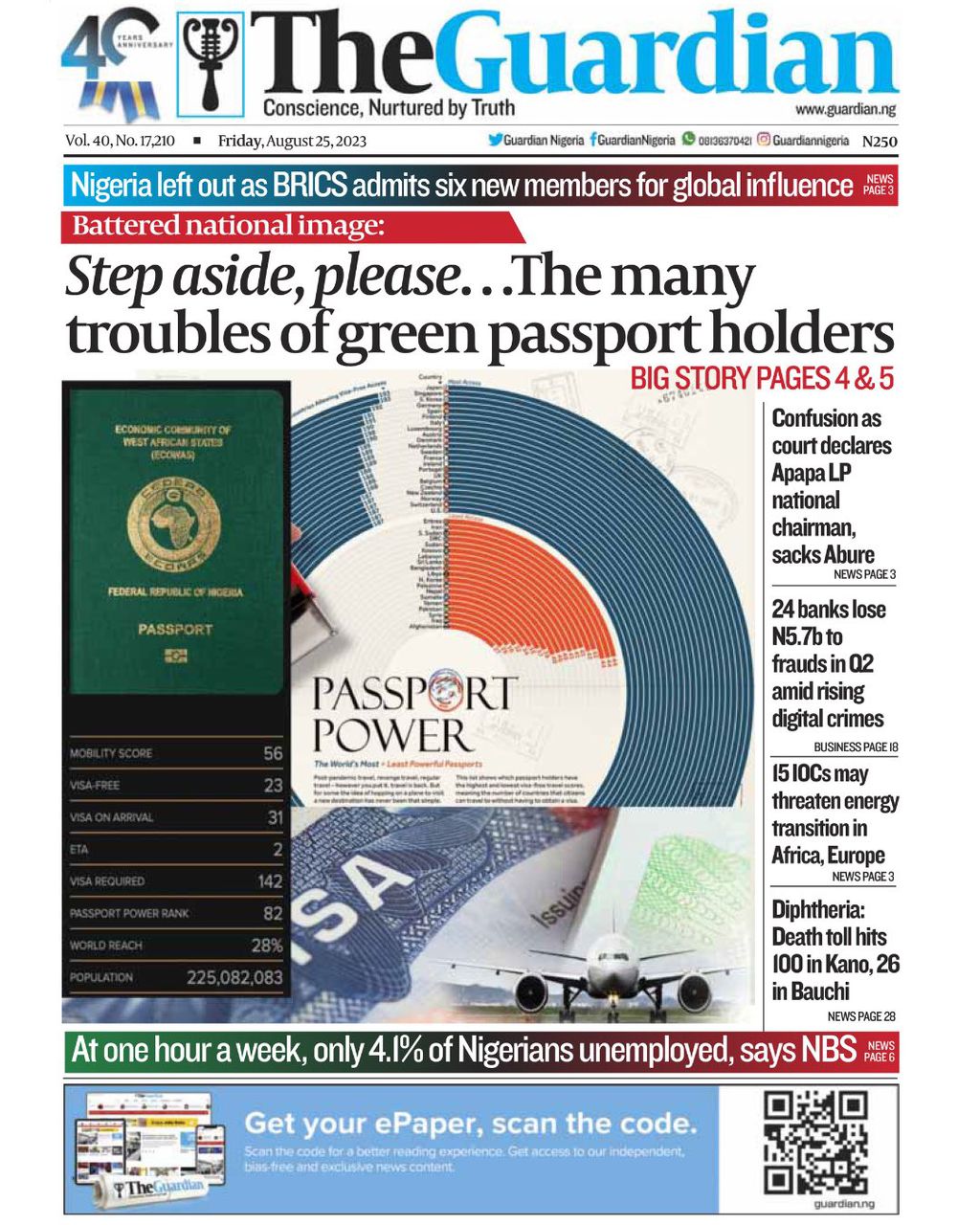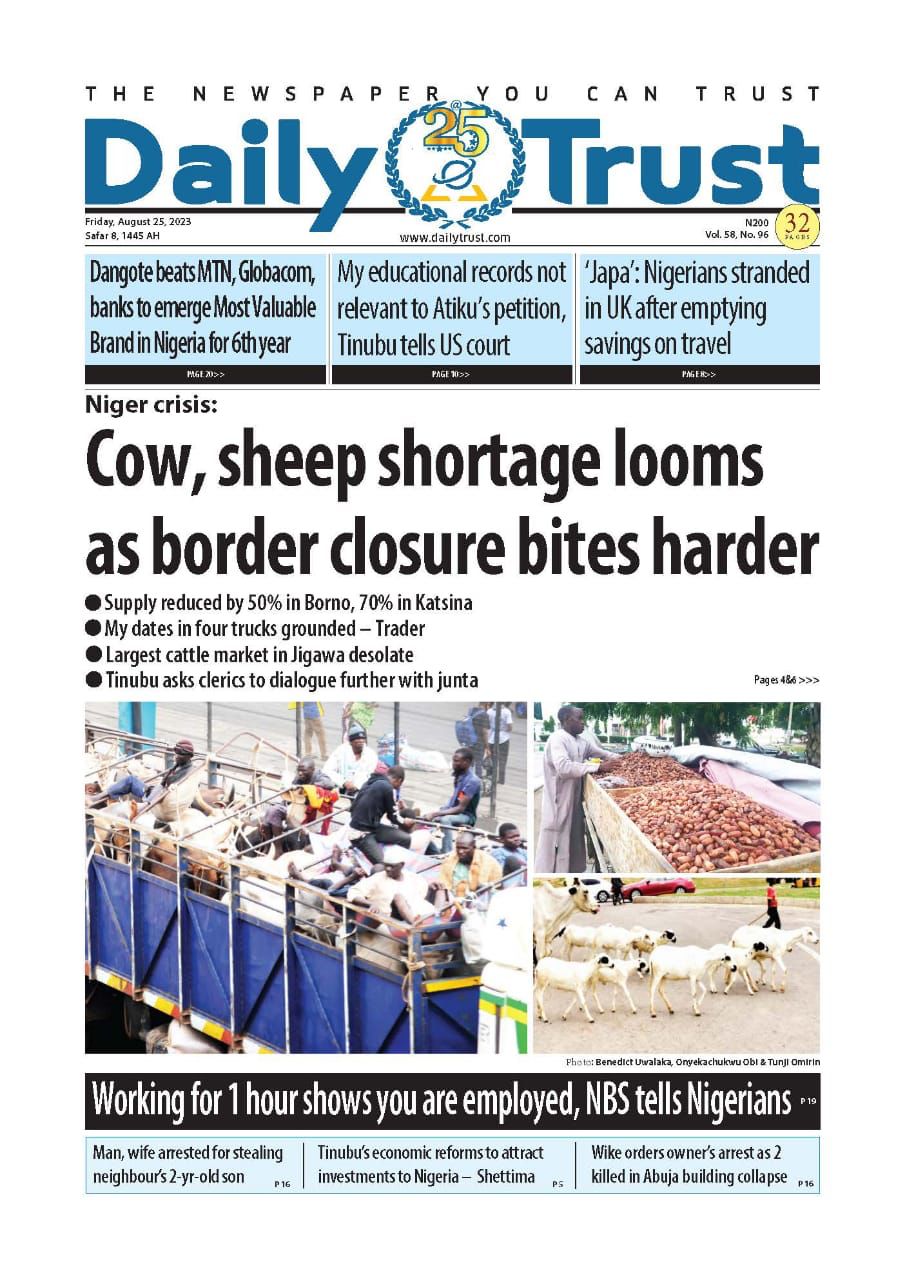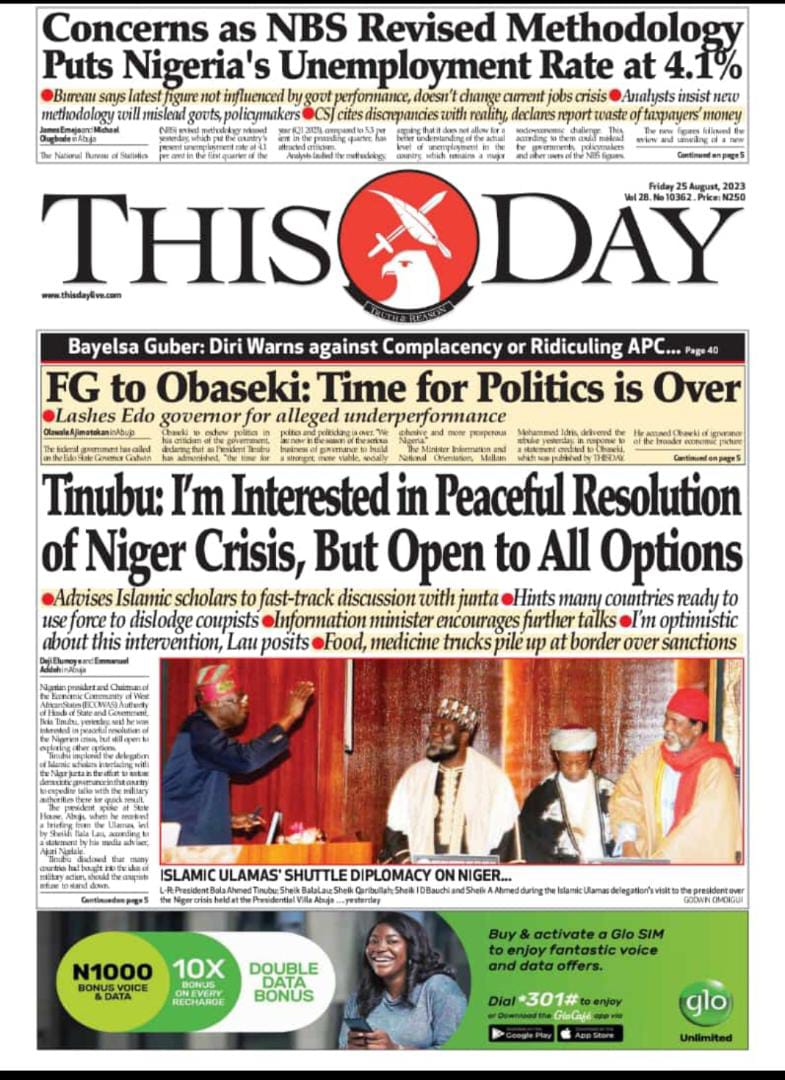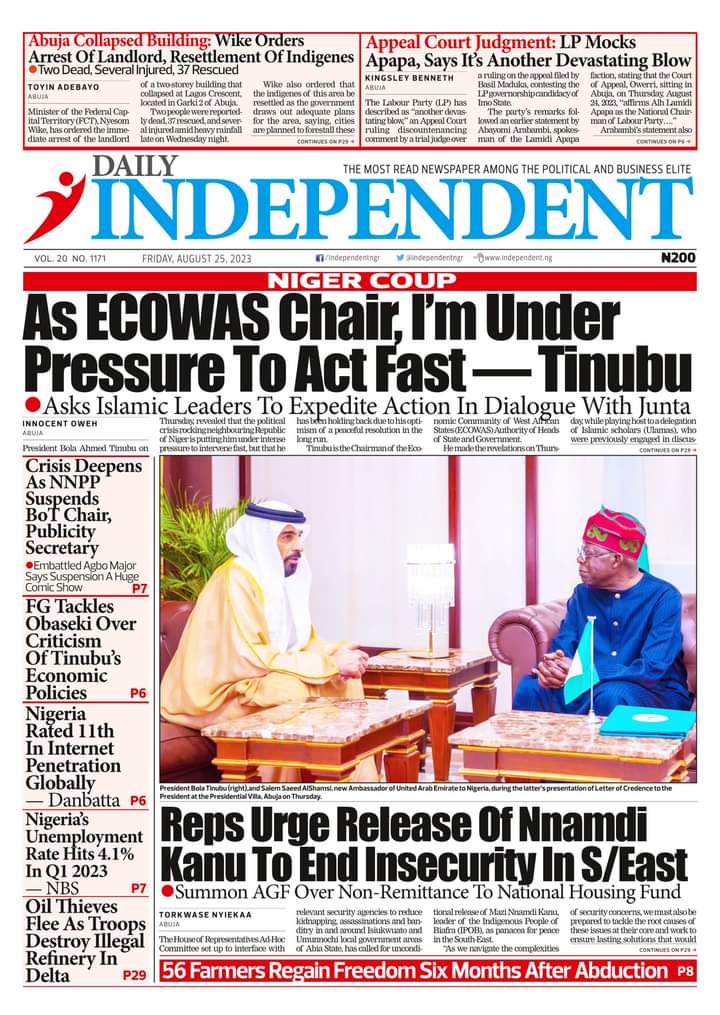Reports on the unemployment rate released by the National Bureau of Statistics (NBS), dominate the cover pages of Nigerian newspapers.





Add a comment


Reports on the unemployment rate released by the National Bureau of Statistics (NBS), dominate the cover pages of Nigerian newspapers.




